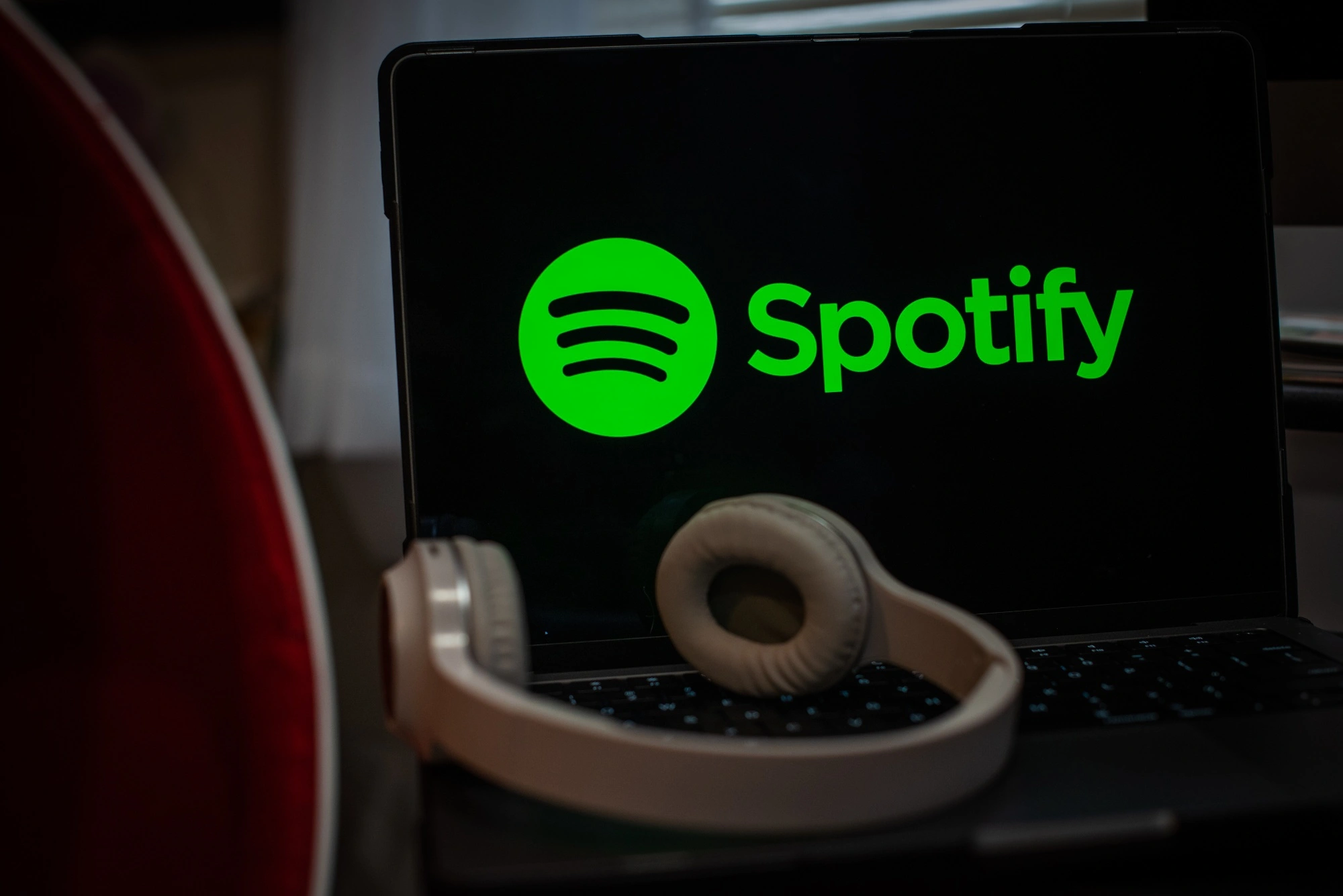
Spotify, the world’s leading music streaming platform, has revolutionized the way we listen to music. Since its founding in 2008 by Daniel Ek and Martin Lorentzon in Stockholm, Sweden, Spotify has grown into a global powerhouse with over 433 million monthly active users and a library boasting more than 80 million songs. From personalized playlists to exclusive podcasts, Spotify offers a diverse range of content to cater to every listener’s tastes. Join us as we explore the fascinating world of Spotify, from its humble beginnings to its impact on the music industry and beyond.
Founded: Spotify was launched in 2008 by Daniel Ek and Martin Lorentzon in Stockholm, Sweden. The idea for Spotify emerged from Ek’s frustration with the limitations of existing music piracy and legal streaming services. Ek envisioned a platform that would provide users with instant access to a vast library of music, while also compensating artists fairly for their work. Teaming up with Lorentzon, a successful entrepreneur, Ek set out to revolutionize the music industry with their innovative streaming service. The launch of Spotify marked the beginning of a new era in music consumption, as listeners embraced the convenience and affordability of streaming over traditional methods like CDs and downloads. From its humble beginnings in Stockholm, Spotify would go on to become one of the world’s most popular and influential music platforms, reshaping the way we discover, share, and enjoy music.
Initial Funding: Spotify secured $15 million USD in seed funding in 2006, laying the foundation for its ambitious expansion plans. The initial investment came from a consortium of venture capital firms and angel investors who recognized the potential of Ek and Lorentzon’s vision. With this funding, Spotify was able to develop its technology, negotiate licensing deals with record labels, and prepare for its official launch. The seed funding provided the necessary resources and runway for Spotify to overcome the challenges of entering a highly competitive and tightly regulated industry. It also signaled to the market that Spotify was a serious player with the backing to disrupt the status quo and challenge established players in the music industry.
Global Users: As of Q1 2024, Spotify boasts over 433 million monthly active users worldwide, solidifying its position as the leading music streaming platform. The platform’s global reach spans across continents, with users from diverse backgrounds and cultures accessing Spotify’s vast library of music and podcasts. The impressive user base reflects Spotify’s broad appeal and its ability to cater to the diverse tastes and preferences of listeners around the globe. From casual music fans to avid audiophiles, Spotify offers something for everyone, making it a household name and a staple in the lives of millions of people worldwide.
Premium Subscribers: With over 187 million Spotify Premium subscribers as of Q1 2024, the platform has achieved remarkable success in converting users to paid subscribers. Spotify Premium offers users ad-free listening, on-demand playback, and offline listening, providing a superior experience compared to the free tier. The growing number of Premium subscribers is a testament to the value proposition of Spotify’s subscription model and the quality of its service. Premium subscribers not only contribute significantly to Spotify’s revenue but also enjoy exclusive benefits and features that enhance their music streaming experience.
Music Library: Spotify boasts an impressive library of over 80 million songs and over 4 billion podcasts on the platform, offering users an unparalleled selection of content to discover and enjoy. The extensive music catalog covers virtually every genre, artist, and album imaginable, ensuring that listeners can find their favorite tracks and explore new music effortlessly. In addition to music, Spotify has also invested heavily in podcasts, recognizing the growing popularity of the format and its potential to attract and retain users. With millions of songs and podcasts available at their fingertips, Spotify users have access to a world of entertainment and inspiration whenever and wherever they want.
First Billion Streams: Spotify reached a major milestone in December 2010 when it surpassed 1 billion streams, just two years after its launch. The achievement demonstrated the rapid growth and popularity of the platform among music listeners worldwide. The milestone was celebrated as a testament to Spotify’s disruptive impact on the music industry, as well as its ability to scale and innovate in a competitive market. Surpassing 1 billion streams in such a short time frame validated Spotify’s business model and signaled to artists, labels, and investors that streaming was the future of music consumption.
Most Streamed Song Globally (All-Time): “Ed Sheeran – Shape of You” holds the record for the most-streamed song globally on Spotify, with over 6.3 billion streams as of May 2024. The infectious pop hit, released in 2017 as part of Sheeran’s album “÷ (Divide),” captivated listeners around the world with its catchy melody and relatable lyrics. “Shape of You” achieved unprecedented success on Spotify, topping charts and breaking records as it racked up billions of streams. The song’s popularity solidified Sheeran’s status as one of the most influential artists of his generation and underscored the power of streaming platforms in shaping music trends and culture.
Most Streamed Artist Globally (All-Time): The band BTS holds the record for the most-streamed artist on Spotify, with over 80 billion streams as of May 2024. BTS, a South Korean boy band known for their catchy pop anthems and captivating performances, has amassed a dedicated global fanbase known as the “ARMY.” The band’s massive success on Spotify reflects their international appeal and cultural impact, as well as the growing influence of K-pop music on the global music scene. BTS’ impressive streaming numbers on Spotify are a testament to their ability to connect with listeners across language barriers and cultural boundaries, transcending genres and demographics. With chart-topping hits, sold-out concerts, and a strong presence on social media, BTS has solidified their position as one of the most influential acts of the 21st century. Their record-breaking achievements on Spotify highlight the platform’s role in amplifying the voices of artists from diverse backgrounds and providing a platform for global music discovery and appreciation.
Daily Song Recommendations: The Spotify algorithm curates an average of 40 personalized song recommendations per day for each user, leveraging data on listening habits, preferences, and trends. These daily recommendations appear in users’ “Discover Weekly” playlists, offering a mix of familiar favorites and new discoveries tailored to their individual tastes. The algorithm takes into account factors such as music genres, artists, albums, and user interactions to generate recommendations that are relevant and engaging. By delivering personalized song suggestions directly to users’ playlists, Spotify enhances the music discovery experience, helping listeners find their next favorite tracks with ease.
First Listed on Stock Exchange: Spotify made its debut on the New York Stock Exchange in April 2018 under the ticker symbol SPOT, marking a significant milestone in the company’s journey towards becoming a publicly traded entity. The decision to go public was a strategic move aimed at raising capital, increasing visibility, and providing liquidity to early investors and employees. Spotify’s initial public offering (IPO) generated significant interest from investors, with the company’s stock price soaring on its first day of trading. The successful IPO cemented Spotify’s position as a leading player in the music streaming industry and provided a platform for future growth and expansion. As a publicly traded company, Spotify is subject to regulatory requirements and investor scrutiny, but also gains access to additional capital and resources to fuel its ambitious plans for the future.
Market Capitalization: As of May 2024, Spotify has a market capitalization of over $50 billion USD, reflecting its status as one of the most valuable companies in the music and tech industries. The market capitalization, calculated by multiplying the company’s current stock price by the total number of outstanding shares, serves as a key indicator of Spotify’s financial health and investor confidence. Spotify’s impressive market capitalization underscores its dominant position in the music streaming market and its potential for future growth and profitability.
Free vs. Premium: Spotify offers both free and premium subscription tiers, catering to users with different preferences and budgets. Free users can listen to music with occasional ads and have limited features such as shuffle play and skip restrictions. In contrast, premium subscribers enjoy ad-free listening, unlimited skips, on-demand playback, and offline listening capabilities. The premium tier, available through monthly subscription plans, provides a more seamless and personalized listening experience, making it an attractive option for users willing to pay for enhanced features and convenience.
Podcast Boom: Spotify aggressively entered the podcasting market in 2019, embarking on a series of strategic acquisitions and exclusive content deals to establish itself as a leading destination for podcasts. Recognizing the growing popularity of podcasts as a form of entertainment and information, Spotify made significant investments to expand its podcast catalog and attract top talent. The platform’s podcasting initiatives have included acquiring podcast networks such as Gimlet Media and The Ringer, signing exclusive deals with high-profile creators like Joe Rogan, and developing original podcast content. By diversifying its content offerings beyond music, Spotify aims to capture a larger share of the growing audio streaming market and retain users with compelling and engaging content.
Higher Payouts to Artists: Spotify boasts a higher payout rate per stream to artists compared to some competitors, although the exact percentage varies depending on factors such as the artist’s royalty agreement and the region of streaming. Despite criticisms from some artists and industry observers regarding the sustainability of streaming revenue for musicians, Spotify maintains that it is committed to fairly compensating rights holders for their creative work. The company has implemented various measures to increase transparency and improve artist payouts, including tools for tracking royalties and negotiating direct licensing deals with independent artists and labels. While the debate over streaming royalties continues, Spotify remains a key player in shaping the future of music distribution and compensation for artists in the digital age.
Discover Weekly Playlist: Launched in 2015, Discover Weekly is a personalized playlist updated weekly with songs that Spotify thinks each user will like based on their listening habits and preferences. Using advanced algorithms and machine learning techniques, Spotify analyzes factors such as the user’s listening history, favorite artists, and genre preferences to curate a unique playlist of recommendations. Discover Weekly has become a beloved feature among Spotify users, providing a convenient way to discover new music and artists tailored to their tastes. The playlist’s success lies in its ability to continuously adapt and improve over time, delivering fresh and relevant recommendations that keep users engaged and excited about discovering new music.
Release Radar Playlist: Another popular feature on Spotify is Release Radar, a personalized playlist that updates listeners with new releases from artists they follow or genres they enjoy. Launched in 2016, Release Radar serves as a curated feed of the latest music tailored to each user’s interests, helping them stay up-to-date with their favorite artists and discover new tracks as soon as they’re released. The playlist’s algorithm takes into account factors such as the user’s listening history, saved artists, and musical preferences to generate a dynamic and engaging feed of new music recommendations. Release Radar enhances the music discovery experience on Spotify, providing users with a convenient way to explore the latest releases from their favorite artists and genres.
Equal Opportunity Playlists: In 2021, Spotify launched “EQUAL” playlists as part of its ongoing commitment to promoting gender equality in the music industry. These curated playlists feature female artists and musicians from diverse backgrounds and genres, showcasing their talent and contributions to the music landscape. By highlighting female voices and creators, Spotify aims to address gender disparities in the music industry and provide greater visibility and opportunities for women in music. The EQUAL playlists serve as a platform for female artists to reach new audiences and gain recognition for their work, helping to create a more inclusive and equitable music ecosystem.
Wrapped Campaign: Spotify’s annual “Wrapped” campaign, launched at the end of each year, provides users with personalized data on their listening habits and music preferences over the past year. The campaign offers users insights into their top songs, artists, genres, and listening trends, presented in a visually engaging and shareable format. Wrapped has become a highly anticipated event for Spotify users, offering a fun and interactive way to reflect on their music journey and discover new insights about their musical tastes. The campaign also serves as a marketing tool for Spotify, driving engagement and social sharing as users eagerly compare their Wrapped results with friends and followers on social media.
Car Thing Integration: In 2021, Spotify launched “Car Thing,” a voice-controlled device designed to enhance the in-car listening experience for Spotify users. Car Thing integrates seamlessly with the Spotify app and connects to the user’s car stereo system, allowing them to control music playback, access playlists, and listen to podcasts hands-free using voice commands. The device features a sleek design and intuitive interface, making it easy to navigate and operate while driving. Car Thing is equipped with advanced voice recognition technology and built-in microphones, ensuring clear and accurate voice commands even in noisy environments. By offering a dedicated in-car solution, Spotify aims to provide users with a safer and more convenient way to enjoy their favorite music and podcasts while on the road.
Environmental Impact: Spotify has faced criticism for its environmental impact due to the high energy consumption associated with data streaming and server infrastructure. The company has pledged to achieve carbon neutrality by 2030, implementing various initiatives to reduce its carbon footprint and mitigate environmental harm. These initiatives include investing in renewable energy sources, optimizing data centers for energy efficiency, and offsetting carbon emissions through reforestation and renewable energy projects. Spotify has also committed to transparency and accountability regarding its environmental practices, publishing annual sustainability reports and engaging with stakeholders to address environmental concerns. While the streaming industry as a whole faces challenges in reducing its environmental impact, Spotify’s efforts to prioritize sustainability and reduce emissions demonstrate its commitment to responsible corporate citizenship and environmental stewardship.
Higher Quality Audio Options: Spotify offers various audio quality options to cater to different listener preferences and device capabilities, with the highest quality tier being “HiFi” announced in 2021 (not yet available as of May 2024). The HiFi tier promises lossless audio quality, delivering uncompressed audio files that preserve the full range and depth of sound without any compression artifacts. This premium audio option is designed for audiophiles and music enthusiasts who prioritize sound fidelity and audio performance. By offering higher quality audio options, Spotify aims to provide users with an immersive and premium listening experience, whether they’re streaming music on high-end audio equipment or enjoying their favorite tracks on the go.
Live Audio Events: Spotify has experimented with live audio events and podcasts, expanding its content offerings beyond on-demand music and podcasts. Live audio events, such as concerts, performances, and Q&A sessions, provide users with unique and interactive experiences that go beyond traditional audio streaming. Spotify’s foray into live audio reflects the growing popularity of live streaming and virtual events, as well as the platform’s efforts to engage users in new and innovative ways. By hosting live audio events, Spotify creates opportunities for artists, creators, and influencers to connect with their audiences in real-time, fostering deeper engagement and community building.
Competitors: Spotify faces competition from a range of music streaming services, including Apple Music, YouTube Music, Amazon Music, and others. These competitors offer similar features and content libraries, competing for market share and subscriber loyalty in the highly competitive streaming industry. While each platform has its unique strengths and offerings, Spotify has maintained its position as a market leader through its focus on innovation, user experience, and content curation. The competition between streaming services has led to advancements in features, pricing, and content exclusives, benefiting consumers with more choices and opportunities to discover and enjoy music.
Future of Music Streaming: Spotify is at the forefront of music streaming innovation, constantly evolving its platform with new features and content to meet the changing needs and preferences of users. The future of music streaming is characterized by advancements in technology, personalization, and content discovery, as well as the integration of new formats such as podcasts and live audio. Spotify’s commitment to innovation and investment in research and development positions it well to lead the way in shaping the future of music consumption. As technology continues to evolve and consumer behaviors shift, Spotify remains focused on staying ahead of the curve and delivering value to its users through cutting-edge solutions and experiences.
Impact on Music Industry: Spotify’s rise has significantly impacted the music industry, transforming the way music is consumed, distributed, and monetized. The shift from physical sales to digital streaming has democratized access to music, allowing artists of all backgrounds and genres to reach global audiences and monetize their creative work. However, the streaming model has also raised questions about fair compensation for artists and the sustainability of the music ecosystem. Spotify’s role in shaping the music industry extends beyond its platform, influencing industry trends, revenue models, and artist-fan relationships. As Spotify continues to grow and evolve, its impact on the music industry will likely remain a topic of debate and discussion among artists, labels, and industry stakeholders.
5 Frequently Asked Questions About Spotify:
Is Spotify free? What are the differences between the Free and Premium plans?
Spotify offers a free tier with access to its vast music library. However, free users experience limitations:
Commercials: You’ll hear ads periodically between songs.
Limited Skips: You can only skip a limited number of songs per hour.
No Offline Listening: Music cannot be downloaded for playback without an internet connection.
Lower Audio Quality: Free users have access to a lower audio quality compared to Premium subscribers.
Spotify Premium offers an ad-free listening experience with additional benefits:
Unlimited Skips: Skip as many songs as you want, whenever you like.
Offline Listening: Download music and podcasts to your device for playback without an internet connection.
Higher Audio Quality: Enjoy higher quality audio streaming for a richer listening experience.
On-Demand Playback: Play any song or podcast on-demand, with no shuffling required.
How does Spotify recommend music for me?
Spotify uses a sophisticated algorithm to personalize your music experience. It considers several factors:
Listening Habits: The songs you listen to most, artists you follow, and playlists you create.
Release Radar: Tracks your followed artists and recommends new releases you might enjoy.
Discover Weekly: This personalized playlist is updated weekly with songs Spotify thinks you’ll like based on your listening habits.
Genre Stations: Explore radio stations based on specific genres or moods.
How much does Spotify Premium cost?
The cost of Spotify Premium varies depending on your location and chosen plan. Here’s a general breakdown (prices may differ slightly by region):
Individual Plan: Typically around $9.99 USD per month.
Student Plan: Discounted plans are often available for students with verification.
Family Plan: Allows up to six accounts under one subscription, often priced around $14.99 USD per month.
Duo Plan: Ideal for couples or two people living together, usually priced around $12.99 USD per month. (Prices may vary)
What are some podcasts available on Spotify?
Spotify boasts a massive library of podcasts covering various genres and topics. Here are some popular examples:
News & Politics: The Daily, Pod Save America, Up First
Comedy: The Joe Rogan Experience, My Dad Wrote a Porno, Call Her Daddy
True Crime: Serial, My Favorite Murder, Dirty John
Sports: Pardon My Take, Around the NFL, The Ringer NBA Show
Business & Entrepreneurship: How I Built This, Planet Money, Freakonomics Radio
This is just a small sampling, and you’re sure to find podcasts that interest you with a quick search on Spotify.
Is Spotify safe to use?
Spotify is generally considered a safe platform for music and podcast streaming. However, like any online service, it’s important to practice caution:
Beware of Phishing Links: Don’t click on suspicious links claiming to be from Spotify.
Strong Password: Use a strong and unique password for your Spotify account.
Parental Controls: If you have children using Spotify, consider enabling parental controls to restrict explicit content.
Privacy Settings: Review and adjust your privacy settings to control how Spotify uses your data.
By following these tips, you can enjoy Spotify safely and securely.









